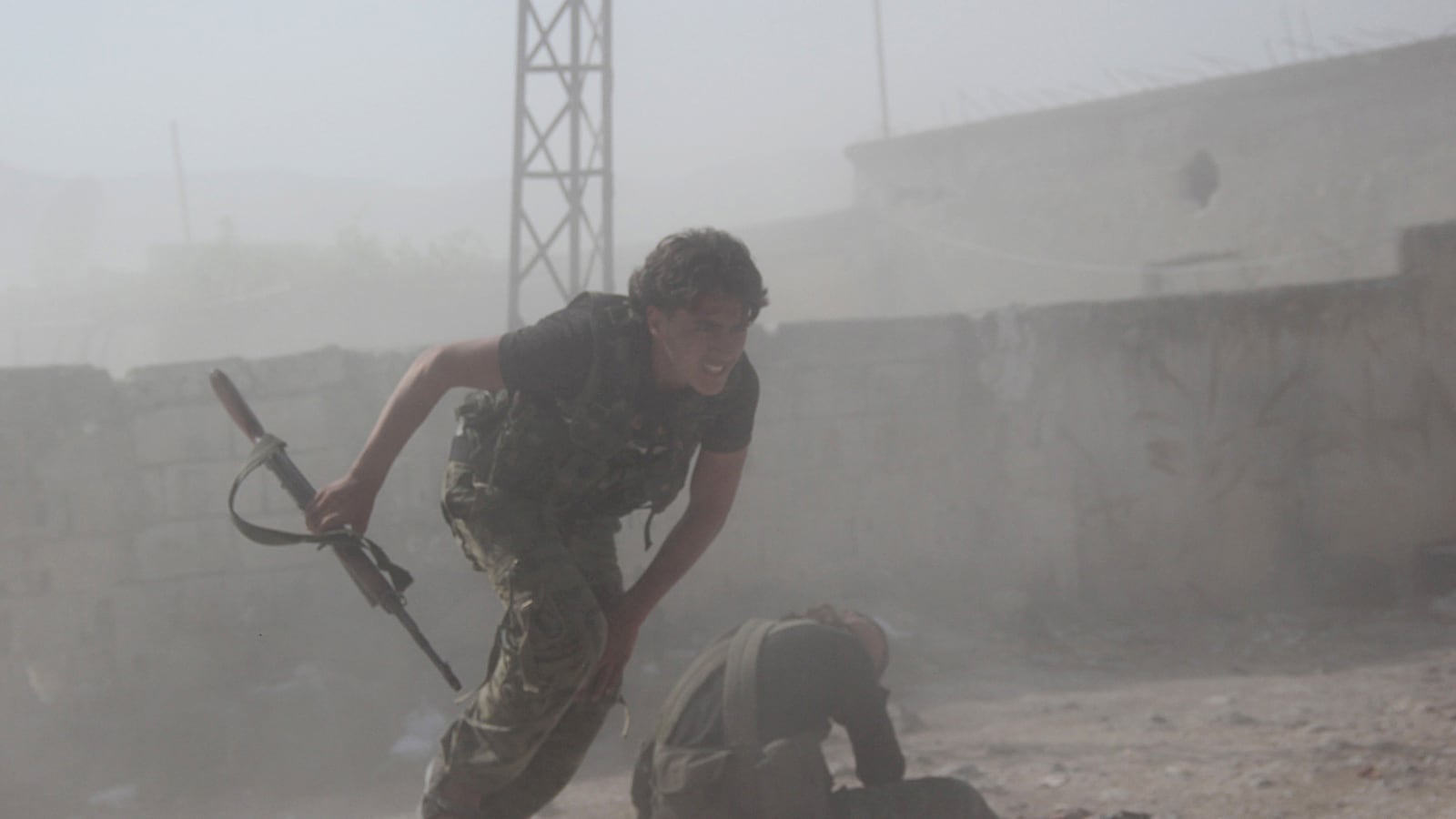GAZIANTEP, Turkey — “There is something heroic about garbage collectors working in a war zone,” says a senior U.S. State Department official, who’s been helping to organize just such civic breakthroughs in those corners of Syria not yet under the sway of ISIS, al Qaeda, or the Assad dictatorship.
So low-key is the U.S. and European endeavor to nurture a civil society in the midst of chaos that it almost seems secret. The civilian assistance program, Support for Local Governance, mounted by the U.S. in rebel-controlled areas in Syria, has gotten precious little press, but it is key to the Obama administration’s effort to nudge the ideological direction of the rebellion, tempering its sectarianism and curtailing the power of radical Islamists by trying to build up a groundswell of popular support for secular, accountable local governance.
“We are trying to avoid mini-Libyas springing up across Syria and militia power raising a threat in any post-Assad Syria that emerges,” says the State Department official.
Officials avoid mentioning “democracy promotion,” with its forlorn Bush-era and Arab Spring associations, but they do say the $300 million program is designed to help civilians in insurgent areas with their daily lives. Pilot programs are underway in parts of rural Aleppo, rural Idlib and some areas in the countryside of Latakia, as well as rebel-controlled towns ringing Damascus. Five hundred children are being schooled, for instance, as a result of the program in one town near Damascus. Officials have asked that the town not to be identified, fearing it may prompt an Assad airstrike.
“We help them keep basic services going—from policing, garbage collection, water and energy provision, the running of clinics and schools—the basics expected from local councils, from local government,” says a senior State Department official. Those working in local councils can attend “Governance 101” classes in Turkey. The attendees can be activists and even technocrats from the Assad era still in place and accepted by local communities.
The approach is supposed to have a cascading effect, with small baby-step cash grants at first for office equipment and eventually the funding of larger repair projects and then, when officials are convinced money is being spent properly, major equipment for civil defense and reconstruction. Ambulances, bulldozers and other equipment have also been sent over. This may not be headline-catching stuff but, aside from actually assisting civilians and local governments to cope as best they can in appalling circumstances, the program—partly developed from lessons learned in Iraq—is to showcase how governance should work.
Officials also hope it will strengthen the hand of civilians in their dealings with the militias, and it contrasts with the dictatorial jihadist governance and state-building in the Islamic State’s so-called caliphate and in areas exclusively controlled by al Qaeda affiliate Jabhat al-Nusra.
One pressing issue for the Obama administration at the moment is whether to extend Support for Local Governance to Idlib, which was captured from the Assad regime by a new rebel alliance called the Army of Victory, or Jaish al-Fata. That alliance is dominated by Jabhat al-Nusra and hardcore Islamist militias. Indirectly via the Western-backed political opposition alliance, the Syrian National Coalition, U.S. officials are urging Jaish al-Fata to keep its hands off local governance.
U.S. and other Western officials say they are eager to assist when it comes to local governance in Idlib city. But until they see the new Islamist alliance distancing itself from local governance, there will be no assistance from Washington.
“We could test the waters using an NGO to see what happens,” says the State Department official. But Jaish al-Fata leaders are saying they want the adoption of Sharia law rather than local judges using the Assad-era law. That is setting off U.S. alarm bells.
The fact that al-Nusra has not sought to claim the new territory captured by Jaish al-Fata as part of an “emirate” is seen by some as a positive sign, but U.S, officials remain skeptical. Rival jihadists in the self-styled Islamic State, widely known as ISIS or ISIL, started inconspicuously in Raqqa, now the de facto capital of their caliphate. Officials say that when ISIS arrived in Raqqa with other militias they behaved themselves at first and they kept their hands off governance, allowing locals to govern themselves. The same sort of thing could happen in Idlib, which would leave this stealthy program for good governance as yet another bright concept for peace in Syria that ultimately went nowhere.






